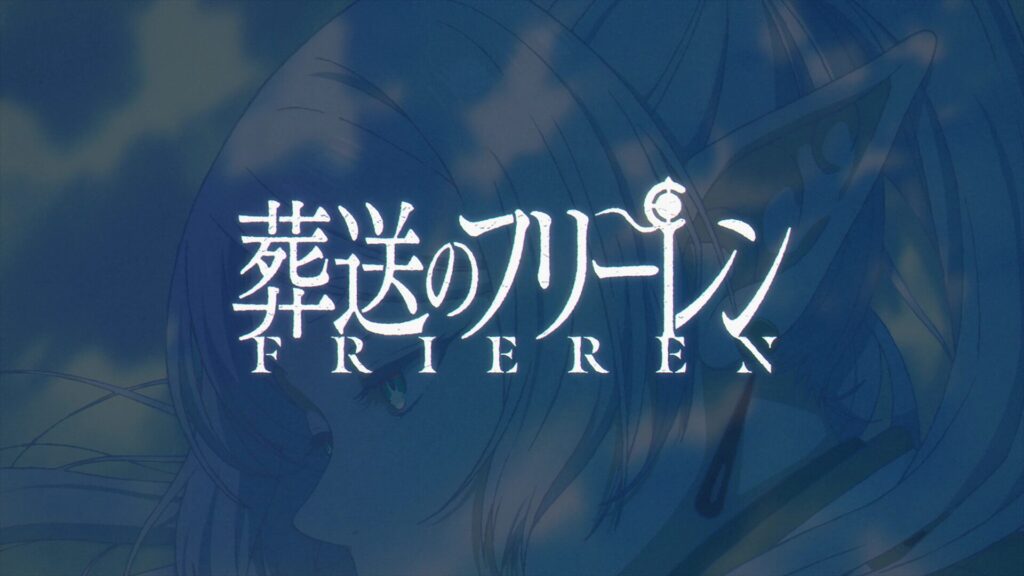
Quote #6 – The Same as You
フリーレン様(さま)は、 本当(ほんとう)に 魔法(まほう)がお好(す)きなのですね。 ほどほどだよ。 フェルンと 同(おな)じで。 少(すこ)し 違(ちが)うような 気(き)がします。 同(おな)じだよ。
It sounds to me like you really do love magic, Mistress Frieren. Only somewhat. The same as you. I, uh, feel we’re a bit different. We’re the same.
ふりーれんさまは、 ほんとうに まほうが すき なのですね。
ほどほど だよ。
ふぇるんと おなじで。
すこし ちがう ような きが します。
おなじ だよ。
Furīren-sama wa, hontou ni mahou ga suki na no desu ne.
hodohodo da yo.
Ferun to onaji de.
sukoshi chigau you na ki ga shimasu.
onaji da yo.
🌟 Waku Waku Word Dive
● ほどほど /ho.do.ho.do/ – Adverb
Meaning: Moderately; just a bit
● おなじ(同じ) /o.na.ji/ – Adjective
Meaning: Same; identical
● ちがう(違う) /chi.ga.u/ – Verb
Meaning: To differ; to be different
● きがする(気がする) /ki.ga.su.ru/ – Expression
Meaning: To feel like; to have a sense
● すき(好き) /su.ki/ – Adjective
Meaning: To like; to love
● さま(様) /sa.ma/ – Honorific
Meaning: Very respectful title, used for superiors
📘 Mini Grammar Boost
~が好きなのですね
Ex: 魔法(まほう)がお好きなのですね
Tip: Polite form of “you like X, don’t you?” – expresses admiration or curiosity
~と同じで
Ex: フェルンと 同(おな)じで
Tip: “Same as X” – used to show alignment or equivalence
~ような気がします
Ex: 少(すこ)し 違(ちが)うような 気(き)がします
Tip: “I feel like it might be different” – soft opinion or impression
~だよ
Ex: 同(おな)じだよ
Tip: Casual, firm assertion — “We’re the same.”
🔀 Slash Reading ? Japanese / English
フリーレン様(さま)は、 本当(ほんとう)に 魔法(まほう)が お好(す)きなのですね。
It seems you truly love magic, Mistress Frieren.
ほどほど だよ。
Only somewhat.
フェルンと 同(おな)じで。
Same as Fern.
少(すこ)し 違(ちが)う ような 気(き)が します。
I feel like we’re a little different.
同(おな)じ だよ。
We’re the same.
Quote #7 – No One Cares Anymore
勇者(ゆうしゃ)ヒンメル様(さま)の 像(ぞう)ですか? ひどい 有様(ありさま)でしょ。 年寄(としよ)り 一人(ひとり)では、 もう どうしようも なくてね。 村(むら)の 人(ひと)たちは もう 関心(かんしん)が ないのよ。
A statue of Himmel the Hero. The poor boy is in terrible shape. I would clean him myself, but it’s too much for one old lady. And I can’t convince the other villagers to care.
ゆうしゃ ひんめるさまの ぞう ですか?
ひどい ありさま でしょ。
としより ひとり では、 もう どうしようも なくてね。
むらの ひとたちは もう かんしんが ないのよ。
yūsha Hinmeru-sama no zō desu ka?
hidoi arisama desho.
toshiyori hitori de wa, mou dou shiyou mo nakute ne.
mura no hitotachi wa mou kanshin ga nai no yo.
🌟 Waku Waku Word Dive
● ありさま(有様) /a.ri.sa.ma/ – Noun
Meaning: Condition; state (often negative)
● としより(年寄り) /to.shi.yo.ri/ – Noun
Meaning: Elderly person
● どうしようもない /dou.shi.you.mo.na.i/ – Expression
Meaning: Hopeless; nothing can be done
● かんしん(関心) /kan.shin/ – Noun
Meaning: Interest; concern
● むら(村) /mu.ra/ – Noun
Meaning: Village
● ぞう(像) /zou/ – Noun
Meaning: Statue; image
📘 Mini Grammar Boost
~でしょ
Ex: ひどい 有様(ありさま)でしょ
Tip: Casual way to seek agreement — “pretty bad, right?”
~では、もう~なくて
Ex: 年寄(としよ)り 一人(ひとり)では、もう どうしようもなくて
Tip: Used to express inability due to circumstances — “can’t do it alone anymore”
~がないのよ
Ex: 関心(かんしん)が ないのよ
Tip: Female-leaning tone expressing regret or sadness — “they just don’t care”
🔀 Slash Reading ? Japanese / English
勇者(ゆうしゃ)ヒンメル様(さま)の 像(ぞう)ですか?
A statue of Himmel the Hero?
ひどい 有様(ありさま)でしょ。
He’s in terrible shape, isn’t he?
年寄(としよ)り 一人(ひとり)では、 もう どうしようも なくてね。
It’s too much for one old woman to handle alone.
村(むら)の 人(ひと)たちは、 もう 関心(かんしん)が ないのよ。
The villagers just don’t care anymore.
Quote #8 – Wasting Time on What May Not Exist
フリーレン様(さま)の 魔法(まほう)に 対(たい)する 執着(しゅうちゃく)は 異常(いじょう)です。 このままでは 何年(なんねん)でも 何十年(なんじゅうねん)でも 探(さが)し続(つづ)けて しまう。 フリーレン様(さま)は 多(おお)くの 人(ひと)を 救(すく)える 力(ちから)を 持(も)った 魔法使(まほうつか)いです。 ありもしないものの ために 時間(じかん)を 使(つか)うだなんて、 あっては ならないことです。
She’s so quick to fixate on anything relating to magic. By the looks of it, she’s going to continue this hunt for years, if not decades. Given her strength as a mage, she has the power to save whole cities of people. She shouldn’t spend her time looking for something so tiny—something that may not even exist.
ふりーれんさまの まほうに たいする しゅうちゃくは いじょう です。
このままでは なんねんでも なんじゅうねんでも さがしつづけて しまう。
ふりーれんさまは おおくの ひとを すくえる ちからを もった まほうつかい です。
ありもしない ものの ために じかんを つかう だなんて、
あっては ならない ことです。
Furīren-sama no mahou ni taisuru shuuchaku wa ijou desu.
kono mama de wa nannen demo nanjuunen demo sagashi tsuzukete shimau.
Furīren-sama wa ooku no hito o sukueru chikara o motta mahoutsukai desu.
ari mo shinai mono no tame ni jikan o tsukau da nante,
atte wa naranai koto desu.
🌟 Waku Waku Word Dive
● しゅうちゃく(執着) /shuu.chaku/ – Noun
Meaning: Obsession; attachment
● さがしつづける(探し続ける) /sa.ga.shi.tsu.zu.ke.ru/ – Verb
Meaning: To keep searching
● すくう(救う) /su.ku.u/ – Verb
Meaning: To save; to rescue
● ありもしない /a.ri.mo.shi.na.i/ – Expression
Meaning: That which does not exist
● つかう(使う) /tsu.ka.u/ – Verb
Meaning: To use; to spend (time)
● あってはならない /at.te.wa.na.ra.na.i/ – Expression
Meaning: Must not happen; unacceptable
📘 Mini Grammar Boost
~に対する執着
Ex: 魔法(まほう)に 対(たい)する 執着(しゅうちゃく)
Tip: “Fixation on something” — shows strong mental focus
~し続けてしまう
Ex: 探(さが)し続(つづ)けて しまう
Tip: “Ends up continuing to do” — shows ongoing and regrettable persistence
~ありもしないもののために
Ex: ありもしない ものの ために
Tip: “For something that may not even exist” — emphasizes futility
~あってはならない
Ex: あっては ならない ことです
Tip: Strong phrase meaning “must not be allowed” or “should never happen”
🔀 Slash Reading ? Japanese / English
フリーレン様(さま)の 魔法(まほう)に 対(たい)する 執着(しゅうちゃく)は 異常(いじょう)です。
Frieren’s obsession with magic is extreme.
このままでは 何年(なんねん)でも 何十年(なんじゅうねん)でも 探(さが)し続(つづ)けて しまう。
At this rate, she’ll keep searching for years—maybe decades.
フリーレン様(さま)は 多(おお)くの 人(ひと)を 救(すく)える 力(ちから)を 持(も)った 魔法使(まほうつか)いです。
She has the power to save so many people.
ありもしない ものの ために 時間(じかん)を 使(つか)う だなんて、
To spend time chasing something that may not exist…
あっては ならない ことです。
That must not happen.
Quote #9 – If the Chance Arises
僕(ぼく)の 故郷(こきょう)の 花(はな)でね。 とても 美(うつく)しいんだ。 まあ 僕(ぼく)ほどでは ないんだけどね。 そろそろ 行(い)こうか。 フリーレン、 いつか 君(きみ)に 見(み)せて あげたい。 そう、 機会(きかい)が あればね。
A flower grown in my homeland. They’re truly beautiful. Though, not quite as beautiful as me. Shall we get going, then? Frieren, I’d like to show you them someday. Sure. If the chance arises.
ぼくの こきょうの はな でね。
とても うつくしいんだ。
まあ ぼくほどでは ないんだけどね。
そろそろ いこうか。
ふりーれん、 いつか きみに みせて あげたい。
そう、 きかいが あればね。
boku no kokyō no hana de ne.
totemo utsukushii n da.
maa boku hodo de wa nai n da kedo ne.
sorosoro ikou ka.
Furīren, itsuka kimi ni misete agetai.
sou, kikai ga areba ne.
🌟 Waku Waku Word Dive
● こきょう(故郷) /ko.kyou/ – Noun
Meaning: Hometown; birthplace
● うつくしい(美しい) /u.tsu.ku.shi.i/ – Adjective
Meaning: Beautiful
● みせる(見せる) /mi.se.ru/ – Verb
Meaning: To show
● きかい(機会) /ki.ka.i/ – Noun
Meaning: Opportunity; chance
● あげたい /a.ge.ta.i/ – Verb (desire form)
Meaning: Want to give/do for someone
● そろそろ /so.ro.so.ro/ – Adverb
Meaning: Soon; it’s about time
📘 Mini Grammar Boost
~ほどではない
Ex: 僕(ぼく)ほどでは ないんだけどね
Tip: Used for modesty or joking — “not as [something] as [someone]”
~に見せてあげたい
Ex: 君(きみ)に 見(み)せて あげたい
Tip: “I want to show (you)” — expresses goodwill toward someone else
~があれば
Ex: 機会(きかい)が あればね
Tip: Conditional phrase meaning “if there’s a chance” or “given the opportunity”
~そろそろ行こうか
Ex: そろそろ 行(い)こうか
Tip: Natural way to say “Shall we get going?” — casual and friendly
🔀 Slash Reading ? Japanese / English
僕(ぼく)の 故郷(こきょう)の 花(はな)でね。
It’s a flower from my hometown.
とても 美(うつく)しいんだ。
They’re really beautiful.
まあ 僕(ぼく)ほどでは ないんだけどね。
Though not quite as beautiful as me.
そろそろ 行(い)こうか。
Shall we get going?
フリーレン、 いつか 君(きみ)に 見(み)せて あげたい。
Frieren, I’d like to show them to you someday.
そう、 機会(きかい)が あればね。
Yeah—if the chance arises.
Quote #10 – You Chose Magic
フェルンだって 魔法使(まほうつか)いに なることを 諦(あきら)めなかった。 それは 違(ちが)います。 私(わたし)は 一人(ひとり)で 生(い)きていける 力(ちから)さえ 手(て)に 入(い)れば、 何(なん)でも よかったのです。 別(べつ)に 魔法(まほう)で なくたって。 でも、 魔法(まほう)を 選(えら)んだ。
Becoming a mage was a challenge, but you never once wanted to give up. That’s very different. I could have learned any other skill that allowed me to support myself and been just as content. It didn’t have to be magic. No. But it’s what you chose.
ふぇるんだって まほうつかいに なることを あきらめなかった。
それは ちがいます。
わたしは ひとりで いきていける ちからさえ てに はいれば、 なんでも よかったのです。
べつに まほうで なくたって。
でも、 まほうを えらんだ。
Ferun datte mahoutsukai ni naru koto o akiramenakatta.
sore wa chigaimasu.
watashi wa hitori de ikite ikeru chikara sae te ni haireba, nandemo yokatta no desu.
betsu ni mahou de nakutatte.
demo, mahou o eranda.
🌟 Waku Waku Word Dive
● あきらめる(諦める) /a.ki.ra.me.ru/ – Verb
Meaning: To give up; to abandon
● ちから(力) /chi.ka.ra/ – Noun
Meaning: Power; strength; ability
● てにいれる(手に入れる) /te ni i.re.ru/ – Verb
Meaning: To obtain; to acquire
● べつに /be.tsu.ni/ – Adverb
Meaning: Not particularly; not necessarily
● えらぶ(選ぶ) /e.ra.bu/ – Verb
Meaning: To choose; to select
● いきていける(生きていける) /i.ki.te.i.ke.ru/ – Verb phrase
Meaning: To be able to live (on one’s own)
📘 Mini Grammar Boost
~だって [subject] + verb
Ex: フェルンだって 諦(あきら)めなかった
Tip: Adds emphasis or inclusion — “Even Fern didn’t give up”
~さえ ~ば
Ex: 力(ちから)さえ 手(て)に入(い)れば
Tip: “If only I had [X], then…” — expresses minimum condition
~でなくたって
Ex: 魔法(まほう)でなくたって
Tip: “Even if it’s not [X]” — casual variation of でなくても
~を選んだ
Ex: 魔法(まほう)を 選(えら)んだ
Tip: Simple and powerful — “You chose [X]”
🔀 Slash Reading ? Japanese / English
フェルンだって 魔法使(まほうつか)いに なることを 諦(あきら)めなかった。
Even Fern didn’t give up on becoming a mage.
それは 違(ちが)います。
That’s not the same.
私(わたし)は 一人(ひとり)で 生(い)きていける 力(ちから)さえ 手(て)に 入(い)れば、
I only wanted the strength to live on my own.
何(なん)でも よかったのです。
Any skill would have been fine.
別(べつ)に 魔法(まほう)で なくたって。
It didn’t have to be magic.
でも、 魔法(まほう)を 選(えら)んだ。
But still… I chose magic.
🟦 The Weight of Parting and the Choice of Magic
フリーレンは フェルンを 弟子(でし)として 迎(むか)えた。
Frieren took Fern in as her apprentice.
魔法(まほう)の 訓練(くんれん)は 厳(きび)しく、 フェルンは 何度(なんど)も 挫折(ざせつ)しかけた。
Training in magic was strict, and Fern nearly gave up many times.
でも、 諦(あきら)めることなく、 自分(じぶん)の 力(ちから)で 前(まえ)に 進(すす)んだ。
Still, she never gave up and kept moving forward on her own.
ハイターは 最後(さいご)の 時間(じかん)を 穏(おだ)やかに 過(す)ごし、
Heiter spent his final days in peace,
その死(し)を フリーレンと フェルンが 見送(みおく)った。
and both Frieren and Fern were there to see him off.
「生(い)きていく 術(すべ)を 身(み)につけること」
“Learning how to survive”—
それが、 フェルンの 恩返(おんがえ)しだった。
was Fern’s way of repaying him.
そして、 フリーレンと フェルンの 旅(たび)が 始(はじ)まった。
And so began Frieren and Fern’s journey.
🌟 Key Words & Phrases
● でし(弟子) /de.shi/ – Noun
Meaning: Apprentice; disciple
● ざせつ(挫折) /za.se.tsu/ – Noun
Meaning: Setback; giving up
● すすむ(進む) /su.su.mu/ – Verb
Meaning: To move forward; to advance
● おだやか(穏やか) /o.da.ya.ka/ – Adjective
Meaning: Calm; peaceful
● みおくる(見送る) /mi.o.ku.ru/ – Verb
Meaning: To see someone off; to attend a farewell


